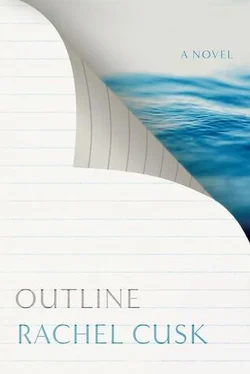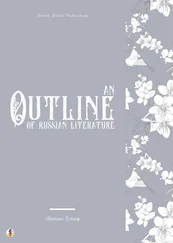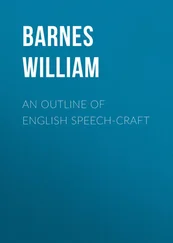‘It was nothing,’ he replied, waving this away — ‘a piece of stupidity, an office flirtation that got out of hand.’
I saw, as he said this, a look of such naked guilt cross his face that I felt as though the scene on the sofa were being re-enacted before my eyes, all these years later. He was, I could see, a bad liar, and it was hard, I said, not to sympathise with his wife, the mother of his children, though that was obviously not the response he wanted to his story. He shrugged. Why should he take all the blame, he said, for the fact that the marriage — which after all had as good as commenced with their engagement while they were still teenagers — had become, if not boring, then comfortable to the point of stupefaction? If he had known what the consequences would be — he tailed off. Well, even then something of the sort would have been inevitable, he admitted. His clandestine romance, insignificant as it was, had beckoned him like the lights of a city seen from far away. He was drawn not so much to this specific woman as to the concept of excitement itself, a prospect that seemed — as he had said, from far away — to welcome him with its largeness and brightness, to offer him an anonymity that might also constitute a re-evaluation of his whole persona, he who was known so thoroughly and yet so limitingly by his wife and before that by his parents, his siblings, his uncles and aunts. It was to be free of their knowledge of him that he sought that brighter world, which admittedly, in his youth, he had made the mistake of believing to be far more extensive than it actually was. He has been disillusioned more times than he could count in his relationships with women. Yet part of that feeling — the feeling of excitement that is also a rebirth of identity — has attended all his experiences of falling in love; and in the end, despite everything that has happened, these have been the most compelling moments of his life.
I said I wondered how he could fail to see the relationship between disillusionment and knowledge in what he had told me. If he could only love what he did not know, and be loved in return on that same basis, then knowledge became an inexorable disenchantment, for which the only cure was to fall in love with someone new. There was a silence. He stood there, looking all at once grizzled and old, his hairy arms folded above his paunch, his swimming trunks sagging between his legs, his birdlike face almost fossilised into its quizzical expression. The silence extended itself, there amid the glittering water and the glaring sun. I became aware of the sound of the water sucking at the sides of the boat, of the harsh cries of the seagulls on their rocks, of the faint sound of engines coming from the mainland. My neighbour lifted his head and looked out to sea, his chin raised, his eyes searching the horizon. There was a certain stiffness in his manner, a self-consciousness, like that of an actor about to deliver a too-famous line.
‘I have been asking myself’, he said, ‘why it is that I find myself so attracted to you.’
He spoke so momentously that I couldn’t help laughing out loud. He looked surprised and somewhat confused by this, but all the same he came towards me, out of the shade and into the sun, heavily yet inexorably, like a prehistoric creature issuing from its cave. He bent down, moving awkwardly around the coldbox at my feet, and tried to embrace me from the side, putting one arm around my shoulders while attempting to bring his face into contact with mine. I could smell his breath, and feel his bushy grey eyebrows grazing my skin. The great beak of his nose loomed at the edge of my field of vision, his claw-like hands with their white fur fumbled at my shoulders; I felt myself, momentarily, being wrapped around in his greyness and dryness, as though the prehistoric creature were wrapping me in its dry bat-like wings, felt his scaly mouth miss its mark and move blindly at my cheek. Through the whole thing I stayed rigidly still, staring straight ahead of me at the steering wheel, until at last he withdrew, back into the shade.
I said that I needed to get out of the sun and was going into the water, and he nodded wordlessly, watching me. I jumped over the side and swam out across the cove, remembering the family on the boat that had been here the last time, and feeling a strange ache almost of homesickness for them, which became a feeling of longing for my own children, who suddenly seemed so far away that it was hard to believe they even existed. I swam for as long as I could, but in the end I returned to the boat and slowly climbed the ladder. My neighbour was occupied with some task, untying and adjusting the narrow ropes to which the buoys were attached that ran along the sides. I stood on the deck, dripping, and watched him, a towel wrapped around my shoulders where my skin hurt from the sun. He had a penknife in his hand, a large red Swiss Army knife with a long ridged blade, and was cutting the frayed ends off the ropes with a sense of purpose, his thick upper arms bulging as he sawed. He retied the ropes while I watched, and then strolled along the deck towards me, the knife still in his hand. Had I had a nice swim, he asked.
Yes, I said. Thank you, I said, for taking the trouble to bring me somewhere so lovely. But he had to understand, I said, that I was not interested in a relationship with any man, not now and probably not ever again. The sun beat uncomfortably on my face while I was speaking. What I valued most of all was friendship, I said, while he played with the knife in his hand, snapping the different blades in and out. I watched pieces of steel appear and disappear in his fingers, each one so distinctly shaped, some of them long and narrow and piercing, others strangely spiked and horned. And now, I said, if he didn’t mind, we probably ought to be going back.
Slowly he inclined his head. Of course, he said; he also had things he needed to do. Perhaps I could wait until he just cooled off himself and then we would be on our way. While he was swimming, straight out in a furrow in his heavy, short-lived crawl, his phone rang somewhere on the deck. I sat there in the sun while it rang and rang, waiting for it to stop.
My friend Elena was very beautiful: Ryan was beside himself. He’d been ambling along the street and spied us sitting at a bar. She’s in a different league, he said, when she excused herself to go and make a phone call. Elena was thirty-six, intelligent, exquisitely dressed. She’s another proposition entirely, he said.
The bar was on a narrow side street so steep that the chairs and tables slanted and wobbled on the uneven pavement. I had just watched a woman, a tourist, fall backwards into a planter, her shopping bags and guidebooks flying out to all sides of her, while her husband sat startled in his chair, apparently more embarrassed than concerned. He wore a pair of binoculars around his neck, and hiking boots on his feet that remained punctiliously tucked beneath the table while his wife flailed in the dry, spiky greenery. Eventually he put out an arm across the table to help her back up, but it was beyond her reach and so she was forced to struggle out on her own.
I asked Ryan what he had done today, and he said that he had gone to a museum or two, and then spent the afternoon wandering around the Agora, though to be honest he was a bit the worse for wear. He’d had a late night with some of the younger students, he said. They’d taken him to a series of bars, each one a good forty minutes’ walk from the next. I was feeling my age, he said. I just wanted a drink — I didn’t much care where I got it or how it came, and I certainly didn’t need to walk to the other side of town to drink it off a lip-shaped sofa. But they’re a nice enough crowd, he said. They’d been teaching him a few words of Greek — he wasn’t sure how much change he’d get for them, his pronunciation being what it was, but all the same it was interesting to get a sense of things on the verbal level. He hadn’t realised how many English meanings came from Greek compounds. For instance the word ellipsis, he’d been told, could literally be translated as ‘to hide behind silence’. It’s fascinating stuff, he said.
Читать дальше












